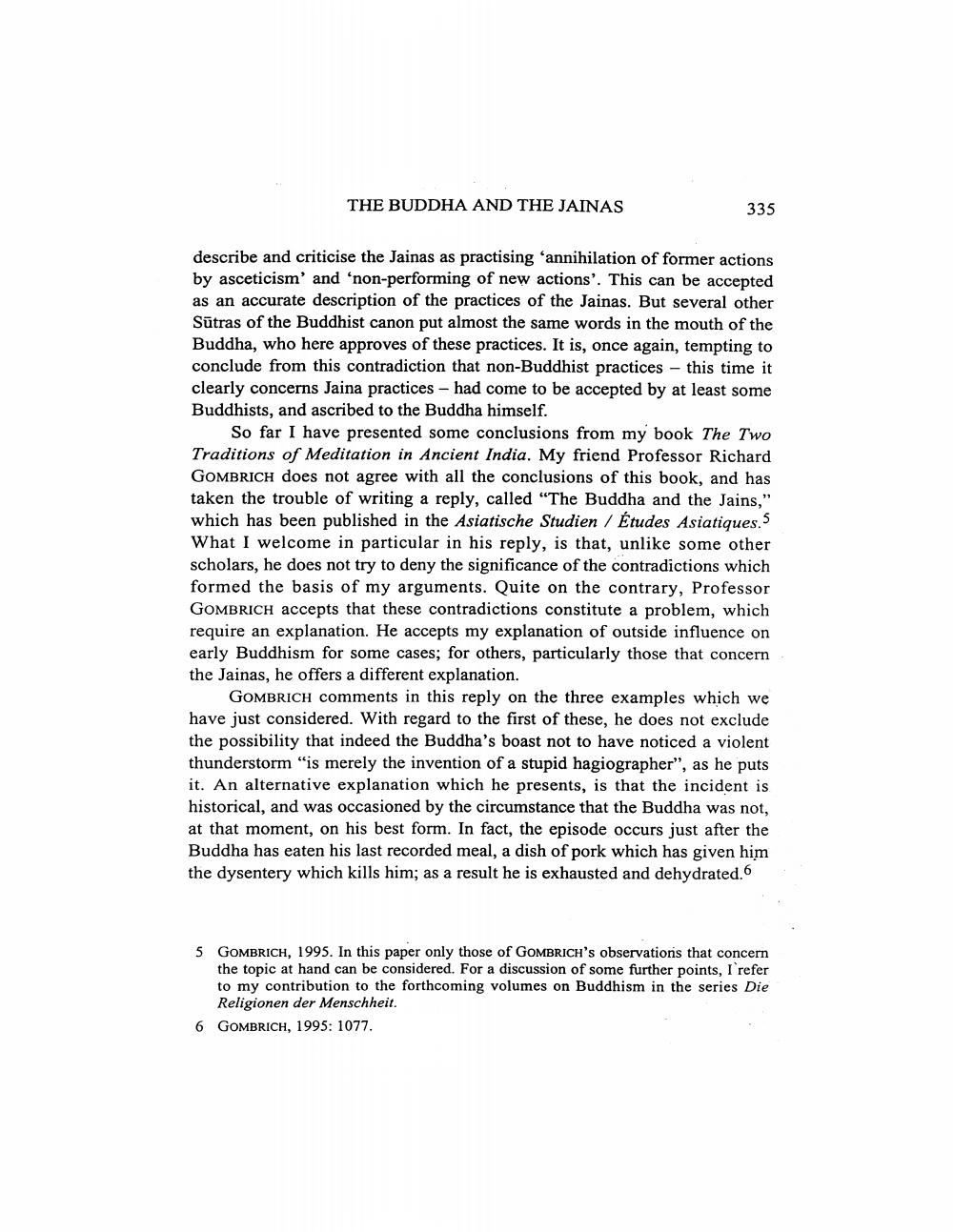Book Title: Buddha And Jainas Reconsidered Author(s): Johannes Bronkhorst Publisher: Johannes Bronkhorst View full book textPage 3
________________ THE BUDDHA AND THE JAINAS 335 describe and criticise the Jainas as practising 'annihilation of former actions by asceticism' and 'non-performing of new actions'. This can be accepted as an accurate description of the practices of the Jainas. But several other Sūtras of the Buddhist canon put almost the same words in the mouth of the Buddha, who here approves of these practices. It is, once again, tempting to conclude from this contradiction that non-Buddhist practices - this time it clearly concerns Jaina practices - had come to be accepted by at least some Buddhists, and ascribed to the Buddha himself. So far I have presented some conclusions from my book The Two Traditions of Meditation in Ancient India. My friend Professor Richard GOMBRICH does not agree with all the conclusions of this book, and has taken the trouble of writing a reply, called "The Buddha and the Jains," which has been published in the Asiatische Studien / Études Asiatiques.5 What I welcome in particular in his reply, is that, unlike some other scholars, he does not try to deny the significance of the contradictions which formed the basis of my arguments. Quite on the contrary, Professor GOMBRICH accepts that these contradictions constitute a problem, which require an explanation. He accepts my explanation of outside influence on early Buddhism for some cases; for others, particularly those that concern the Jainas, he offers a different explanation. GOMBRICH comments in this reply on the three examples which we have just considered. With regard to the first of these, he does not exclude the possibility that indeed the Buddha's boast not to have noticed a violent thunderstorm "is merely the invention of a stupid hagiographer", as he puts it. An alternative explanation which he presents, is that the incident is historical, and was occasioned by the circumstance that the Buddha was not, at that moment, on his best form. In fact, the episode occurs just after the Buddha has eaten his last recorded meal, a dish of pork which has given him the dysentery which kills him; as a result he is exhausted and dehydrated. 5 GOMBRICH, 1995. In this paper only those of GOMBRICH's observations that concern the topic at hand can be considered. For a discussion of some further points, I refer to my contribution to the forthcoming volumes on Buddhism in the series Die Religionen der Menschheit. 6 GOMBRICH, 1995: 1077.Page Navigation
1 2 3 4 5 6 7 8 9 10 11 12 13 14 15 16 17 18
